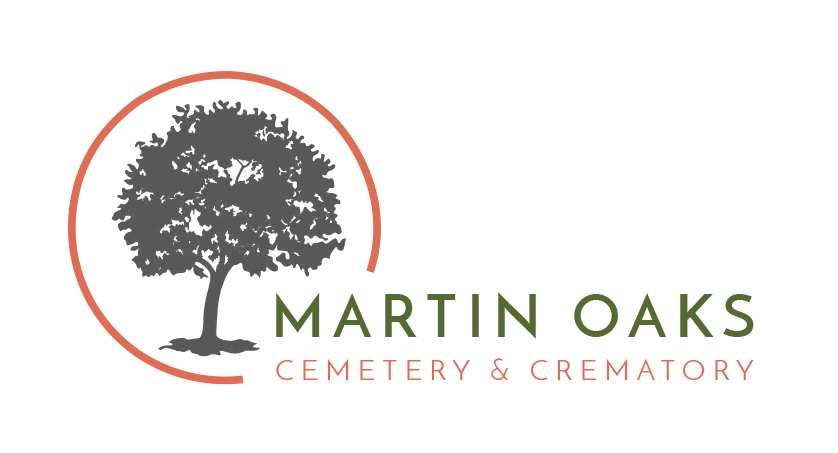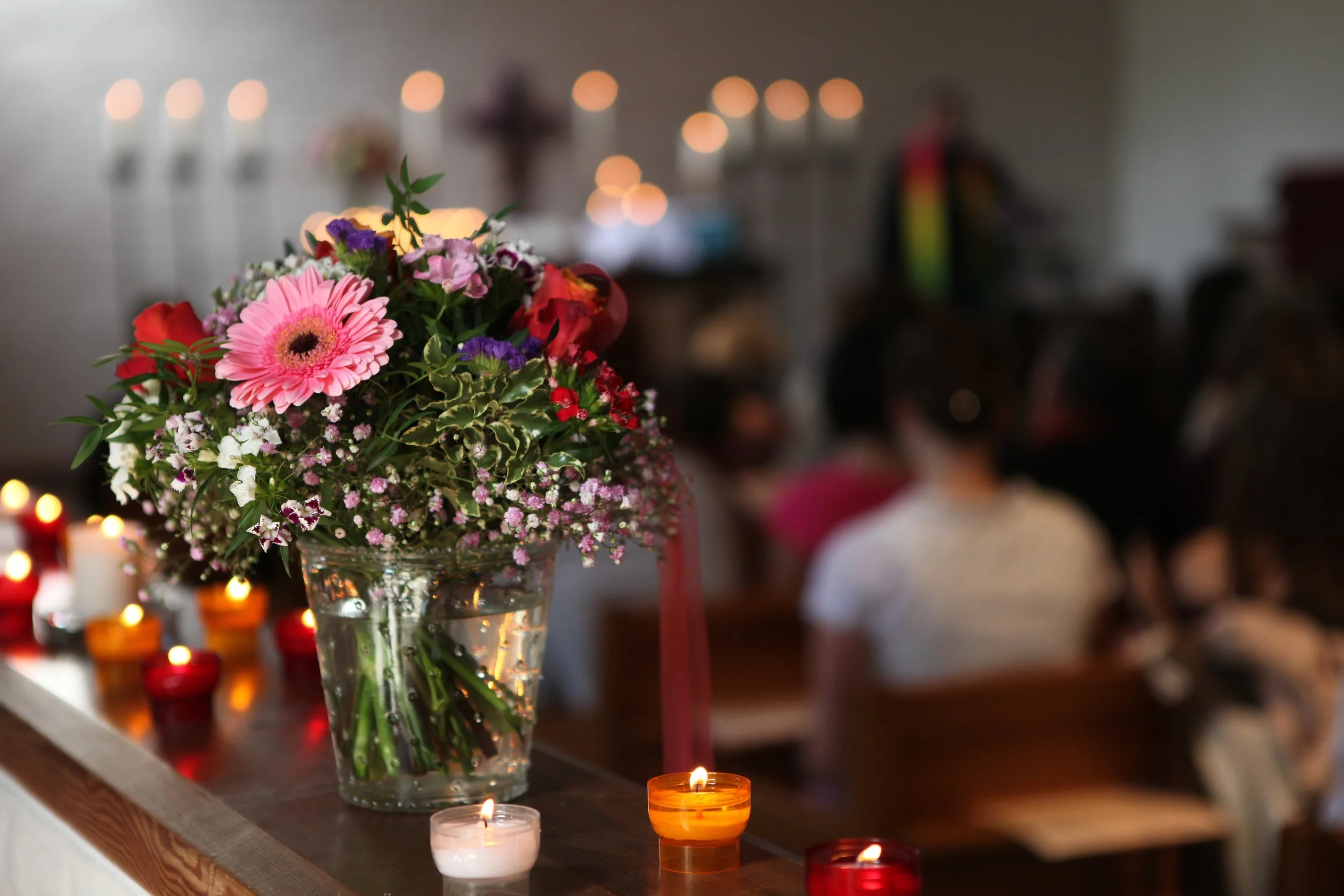Blog
Grave Reflections
Thoughts, teachings, and musings regarding death, memorialization, cremation, and everything else to help enlighten, edify, and demystify the myths and misconceptions surrounding the inevitable.
Beyond the Casket: Decoding the Essential Vocabulary of Final Arrangements 📚
When you are facing the loss of a loved one, the last thing you need is to feel lost in a sea of unfamiliar industry jargon. The funeral and crematory profession uses specific terminology that, while necessary for clarity in the industry, can feel confusing and overwhelming to families during a time of grief.
To help you navigate this process with more confidence and less stress, here is a breakdown of the essential vocabulary you may encounter when making final arrangements.
Five Things to Consider When Planning a Memorial Service
When someone we love passes away, it's a difficult time. While the final arrangements are about honoring the person who died, the memorial service itself is ultimately for the living.
The Top 5 Most Popular Cremation Urns in the U.S. — And Why Families Love Them
Choose your forever outfit!
An urn isn’t just a final step—it’s a final statement. A way to honor, reflect, and even celebrate. Where to start? Here is a look at the top 5 urn styles popular now, honorable mentions, and a look at future trends.
The Weirdest Questions We’ve Ever Been Asked (And the Answers)
The questions people ask in times of grief are rarely about curiosity alone—they’re about meaning, connection, memory, and getting things right. And sometimes, yes, they’re about whether you can legally put someone’s ashes in a custom-painted garden flamingo.
We’re here for all of it.
So ask your questions. All of them. The practical, the personal, the weird, the sacred, the ones you’re afraid will sound silly. Nothing about love or loss is silly to us.
What Happens to a Body After Death?
Death is one of life’s most intimate and inevitable experiences. While no two journeys are the same, understanding what happens after death can bring peace to families facing one of life’s most difficult transitions.
At Martin Oaks Cemetery & Crematory, we are not just in the business of services—we are in the business of care. If you have questions—whether for yourself, a loved one, or just out of curiosity—we’re here to talk. There’s never a wrong time to ask.
🔥 Memorial Items—To Cremate or Not to Cremate ♦︎ A Friendly Guide from Martin Oaks Cemetery & Crematory
“Can we include this with our loved one during the cremation?”
Sometimes, the answer is a gentle yes. Other times—due to safety concerns, environmental impact, or just plain physics—it’s a firm no. So we thought we’d share a helpful guide of things that shouldn’t make the final journey with your loved one, and why.
From Ashes to Acceptance: A Brief History of Cremation in the Western World
From its ancient roots, through centuries of suppression, to its contemporary resurgence, the story of cremation in the Western world is deeply intertwined with religious transformation and societal evolution. As more families seek personalized, meaningful, and environmentally conscious memorials, cremation continues to reshape how we honor life and legacy.
The Rising Cremation Rate in Texas—A Shift in Funeral Traditions
While burial was once the dominant choice for Texans, changing societal attitudes, economic considerations, and cultural adaptations have contributed to the increasing preference for cremation.
Who Controls What Happens To My Body When I Die?
What happens to me after I die? Who controls what happens to your body after your passing. Make sure your wishes are honored and not left to chance. Or worse, left to someone that you do not want to make decisions for you after you die. Here is a guide.
Did You Know Texas Requires All Funeral Homes have an On-Site Functioning Embalming Room?
Why does Texas require all funeral homes have an on-site functioning embalming room even if the firm doesn’t offer embalming?
How do YOU Honor Your Loved Ones Who Passed?
In the United States, traditions surrounding death and mourning are as diverse as the cultural backgrounds and religious beliefs of the people who observe them. These practices offer families ways to honor their loved ones, find closure, and support each other during a time of loss. While customs can differ widely from family to family, here are some of the most common ways people in the U.S. honor their loved ones after they pass away.
5 Unique and Different Religious Funeral Ceremonies Most Common in Texas
In Texas, a state with rich cultural diversity, funeral rituals reflect various religious, cultural, and traditional practices. However, several funeral customs are particularly common across the state. There has been a lot of press regarding the increase in the non-affiliated but there will always be those who follow deeply held religious beliefs, especially regarding death and the afterlife. We honor them all at Martin Oaks Cemetery & Crematory.
What to do When there is Nowhere to Go
We may think our loved ones will have it all figured out when we pass, but do they really? What about the ashes of your grandparents sitting in eternal peace in the closet? Do your grandchildren really want them in their closet when it’s time to sort through your belongings? It may or may not surprise you that, in most cemeteries, ashes can be buried along other ashes or a full casket all in one grave.
5 Religious Groups That Actually Discourage Cremation
The treatment of the deceased is a reflection of deeply held beliefs and traditions. Religion, in particular, plays a pivotal role in shaping these attitudes, guiding rituals, and influencing the way societies honor and remember their departed loved ones. Although there isn't a single global religious group (with one exception) that strictly forbids cremation, there are some religions that traditionally discourage or prohibit it.
Funeral Traditions of the Past
From the solemnity of post-mortem portraits to the sartorial elegance of Victorian mourning attire, our exploration unveils the unique practices that once defined the farewell rituals of yesteryear. Could history be repeating itself?
Cremation versus Burial. Or Both?
People choose cremation over burial for a variety of personal, cultural, and practical reasons but it isn’t surprising that many people choose both. Yes, you can bury cremated remains in a cemetery plot with a headstone and graveside ceremony if desired. Here are the top five reasons why people opt for cremation.
The Beauty of Cremation
Whether one chooses cremation or another form of disposition, the essence is the same - the profound human connection to the cycle of life and the celebration of a unique individual's existence. Cremation, with its rich history and symbolic depth, continues to be a choice that resonates with many, offering solace, sustainability, and a timeless connection to our shared humanity.
Balinese Funeral Customs Celebrate Existence
Celebrating the Joy of Existence—Elaborate bamboo structures called "bade" are crafted and embellished with flowers, sacred symbols, and intricate designs. These bade, resembling mythical creatures or traditional architecture, are used as elaborate sarcophagi to transport the deceased.
7 Things to Consider When Choosing a Funeral Provider
7 Important Things to Consider When Choosing a Funeral Provider
Things You Can Do With Cremated Remains
For those choosing cremation, ashes can be honored in many creative and meaningful ways. While some options are unconventional, there are many more traditional things you can do with cremated remains to memorialize someone who has died. All of these options allow you to keep their memory alive in a way that feels personal and special to you.




















